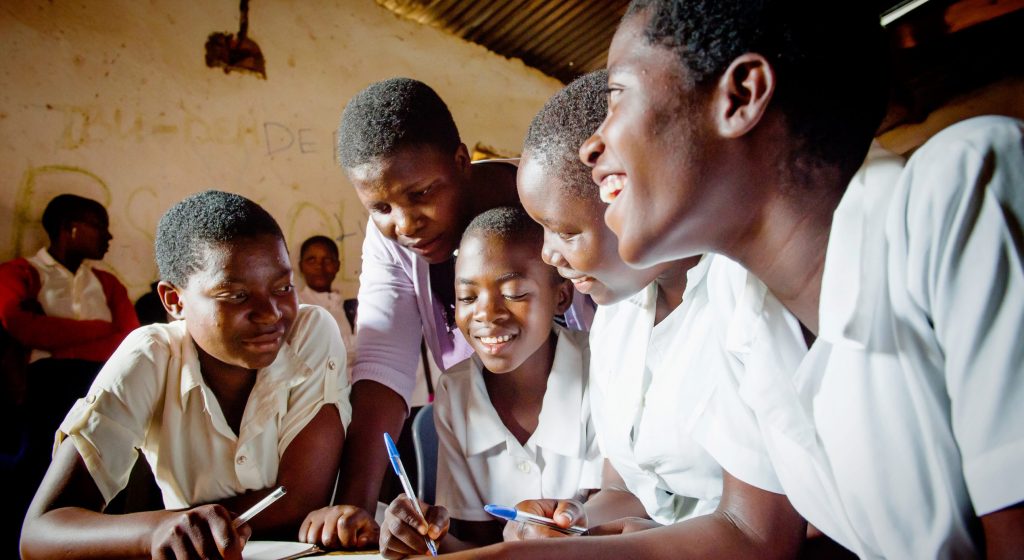Married, dumped at 14
Bertha Fanuel, from Chikwawa District, got married and divorced at the age of 14.
She mirrors a silent crisis in Malawi, where nearly half of girls marry before they reach 18—the legal marriageable age.

Ironically, the 16-year-old ex-husband divorced Bertha because she opposed his plan to take her 12-year-old sister as a second wife.
Nthena, a time-honoured tradition among the Sena tribe of Chikwawa and Nsanje in the Shire Valley, allows “a good husband” to marry a sister to his wife.
Bertha’s aunt reported the nagging demands by Bertha’s husband to Chikwawa Police Station Victim Support Unit (VSU), where the husband opted for separation.
Bertha, now 19, says she ended up in the illicit marriage to escape from worsening poverty.
She explains: “My parents got divorced when I was young and my mother was struggling to provide for me and my sister. We used to spend days without proper meals and life was hard,” she explains.
While in Standard Eight, Bertha met the teenager who impregnated her. However, she sat Primary School Leaving Certificate of Education (PSLCE) examination and got selected to Nthumbe Community Day Secondary School in the vicinity.
“Nobody knew at the time that I was pregnant, so I started secondary. But with time, I couldn’t hide it anymore. I dropped out to get married,” she says.
However, marriage was not rosy for the teen mother. The breadwinner had no education, skill and job. The couple depended on his parents for everyday basics.
Bertha says squabbles were the order of the day and the two often spent weeks without talking to each other.
“This,” she says “tortured me psychologically”.
Bertha had just birthed a baby boy when her husband started demanding to marry her young sister. The man said the 14-year-old was “wasn’t fresh anymore”.
Following the divorce accelerated by his attempts at polygamy, Bertha returned to her mother’s homestead while the man fled to South ostensibly to seek greener pastures.
Bertha is in Form Three at Nthumbe CDSS after mentors trained by Save the Children’s Apatseni Mwayi Atsikana Aphunzire (Amaa) Project approached her to discuss why it is important for teen mother to return to school.
“My mother also supported me to return to school. Thanks to her support and the project’s bursary scheme, I have adequate support and I don’t encounter challenges anymore,” she says.
Bertha, who aspires to become a journalist, was accepted back by both authorities and schoolmates.
Save the Children country director Kim Koch is happy that the project has a tremendous impact on girls’ education.
She says: “Today, we see the results and we have more than hope for not only the good progress for these girls but for all the girls that will follow them.”
The project launched in December 2016 will wind up this month. The bursary scheme also benefitted 1 835 girls and 630 boys in Chikwawa, Phalombe, Balaka, Machinga and Mzimba.
Koch says it is imperative for education stakeholders at all levels to sustain the interventions when funding phases out.
“We have witnessed how beneficial the bursaries have been to educating girls, who hold up half the sky. They are the future of Malawi. For the national government, we can do more, so let’s take this to other districts,” says Koch.
Chikwawa District director of education and sports, Chrissie Chimsale said the project has helped vulnerable girls, especially those liberated from early pregnancies and marriages, attain education.
“It greatly improved the enrolment and retention of girls in schools. However, because of the lengthy school closures caused by the Covid-19 pandemic, the gains registered were disrupted because a good number of girls had dropped out of school and got married.”
Apart from bursaries, Save the Children supported several components, construction of secondary schools, gender norm transformation, girls’ empowerment as well as reducing child marriage and teen pregnancy.
The improved retention of girls was marked in upper primary schools, with many transitioning to secondary schools following an increase in the number of spaces in secondary schools.
The project led to the construction of six CDSSs in Balaka and five in Machinga, each complete with two teacher houses and stocked laboratories.
Save the Children also constructed a girls’ dormitory at Mpherembe CDSS in Mzimba.





